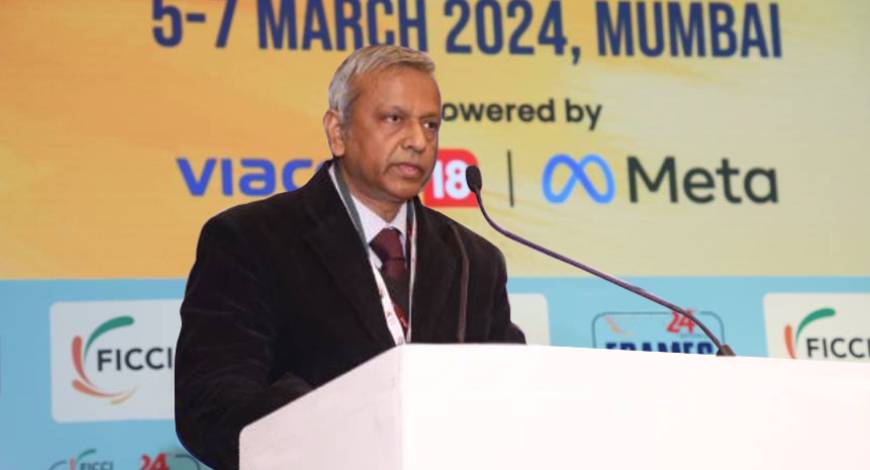BCS Stories
Sanjiv Shankar at FICCI Frames 2024

Addressing the 24th edition of FICCI FRAMES 2024, being held at Mumbai March 5-7, 2024, Sanjiv Shankar, Joint Secretary, Broadcasting, Ministry of Information and Broadcasting shared his insights on the connection between telecom service providers and OTT players.
Shared Shankar, “As far as India is concerned, I do not see personally that there is a huge necessity or urgency for sharing of cost for infrastructure. I think in India that the demands from the telcos for “fair share” fees is irrelevant at this stage because the two telecom service providers are very well placed as far as their profitability is concerned. Even when they indicate losses “it is not because of the operational issues, but because of the legacy issues. And if there were a need for cost sharing in the future, “it should be best left to the market to be determined, rather than any audit-based process because that will be very cumbersome and very difficult to adjudicate when there are litigations.”
OTT applications, facilitated by internet protocols, have decoupled content from carriage, empowering service providers to directly reach end-user communication networks. This decoupling has allowed OTT players to ride on a readymade infrastructure, herein lies the issue.
In this evolving landscape, OTT services like WhatsApp, Instagram, Telegram, Skype have emerged as formidable competitors to the traditional telecom services, leveraging the same infrastructure laid down by telecom service providers. Yet they do not directly compete with the services governed by telecom licenses. This dichotomy poses profound questions about regulation, competition, and consumer welfare.
The rise of broadband internet has been maturing in India. We know that this is witnessing exponential growth in the past decade. However, amidst this transformative shift, regulatory challenges loom large. The debate over the regulatory framework for OTT services has been ongoing, with stakeholders grappling to strike a balance between fostering innovation and ensuring a level-playing field. TRAI consultation and the offering on OTT regulation underscored the complexities inherent in this space calling for a nuanced approach that considers international precedents and emerging regulatory paradigms.
Central to this discourse is the principle of net neutrality, which advocates for equal treatment for all internet traffic. Imposing carriage fees on OTT services could potentially undermine this principle.
Shankar also delved on the carriage fees. Asked he, “Can we bring that template in the relationship between the telecom operators and the OTT players also? So, the imposition of carriage fees may have another side of the argument that has adverse consequences for consumers, leading to increased costs and reduced choice. Critics argue that such fees could hamper innovation and competition in this streaming industry favoring larger players at the expense of smaller ones.
What is suggested by most is that a collaborative framework that encourages dialogue between OTT providers and telecom operators are essential to address regulatory uncertainties and promote a thriving digital economy.
The collaborative framework, which is being talked about, can take care of one or many of these suggested points:
One is creating an enabling environment to encourage competition, innovation, and investment in the digital economy. Then OTT and network operators remain critically interdependent to each other. We should continue to foster entrepreneurship and innovation on OTT application side. It is not that if a carriage fee is imposed, it will stifle innovation in the OTT application side.
If the situation allows the voluntary commercial arrangements between telecom network operators and OTT providers may be encouraged,” he added.
Also read,
Sanjay Jaju at FICCI Frames 2024
Gaurav Dwivedi at FICCI Frames 2024
BCS Bureau




